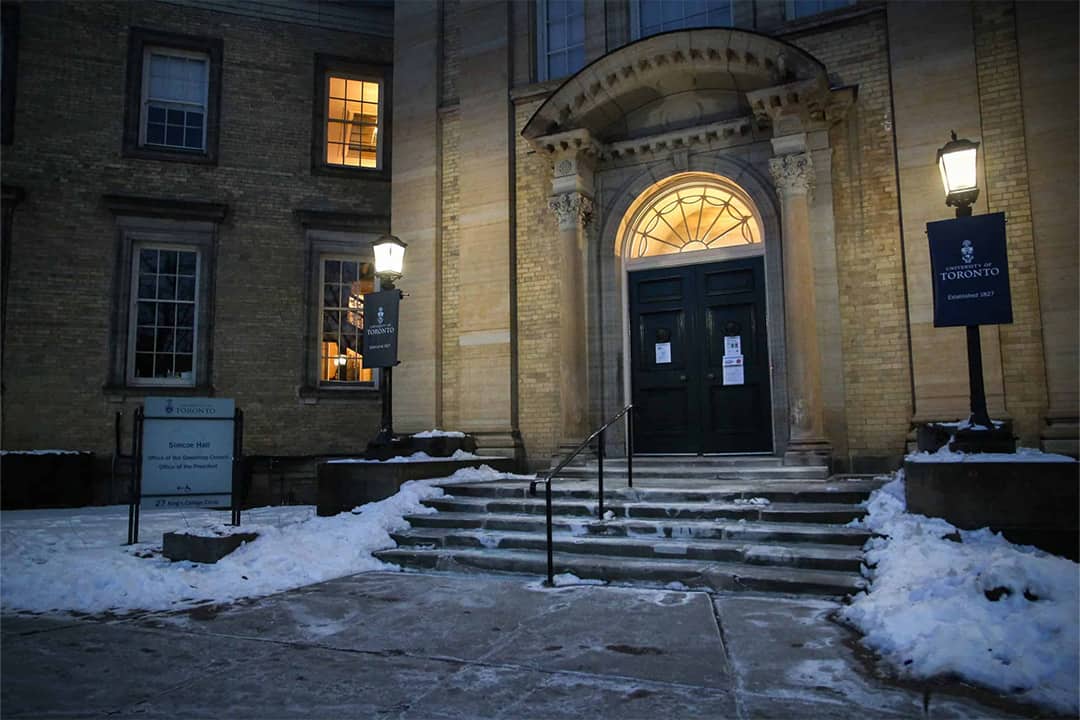The Academic Affairs Committees of UTM (UTM AAC) and UTSC (UTSC AAC) each held their first meetings of the 2023–2024 academic year on September 19 and September 21, respectively.
The UTSC committee spoke about summer enrolment and budget shortfalls, new academic opportunities, and salary increases, while the UTM administration discussed a spike in enrolment and curricula updates.
UTSC’s summer enrolment and budget shortfall
During the UTSC AAC, Professor and Vice-Principal Academic & Dean William A. Gough shared that UTSC had experienced an “enrolment shortfall” during the summer, leading to a “substantial revenue drop.”
Gough noted lower summer enrolment among international students compared to previous years. He speculated that China’s decision to lift some of its COVID-19 travel restrictions “enabled our students, many of whom hadn’t been home for a number of years, to return in a relatively unfettered way,” leading less students to stay in Toronto over the summer.
More domestic students, however, enrolled at UTSC this summer than in 2022. Gough noted that, along with the revenue hit in the summer, the UTSC’s enrolment targets for the 2023–2024 year were “somewhat less than we had hoped for — another revenue hit.”
Gough also mentioned at the UTSC AAC that the university is raising the salaries of UTSC faculty members by seven per cent and the salaries of United Steelworkers (USW) Local 1998 members by nine per cent. USW Local 1988 represents 5,800 administrative and technical staff around all three campuses of U of T. This announcement follows new rounds of union negotiations after a judge struck down provincial Bill 124 in November 2022, which had imposed caps on salary increases for public sector employees.
Gough said these pay increases “[add] to a substantial financial pressure” that the university is currently facing and could cause “some delays in the hiring of both staff and faculty over the next couple of years.”
UTSC’s new programs
Gough said that the provincial government had approved a joint specialist program in music industry and technology between UTSC and Centennial College. The Department of Political Science may also implement a major in public law this year after the success of its public law minor, according to Gough.
The departments of political science, philosophy, and economics are currently developing a joint program, abbreviated PPE, which may roll out this year. Cross-curricular programs with this name trace their roots back to the University of Oxford in the 1920s and have gained prominence at schools worldwide.
Gough said UTSC will also focus on supporting the onboarding of a new cohort of students who will attend the Scarborough campus’s new medical school, the Scarborough Academy of Medicine and Integrated Health (SAMIH). The SAMIH is a joint initiative between U of T and the Ontario government to address Ontario’s “constrained health system.”
Gough said that the university plans to modify the co-op program — which allows UTSC students to gain work experience — to accommodate the SAMIH students and add more courses to the Certificate in Pathways to Health Professions introduced last year. UTSC expects the SAMIH program to start in 2026, according to Gough.
UTSC student questions and concerns
During the question portion of the UTSC AAC, Aliya Ali Shaikha, a third-year student and Campus Affairs Committee member, proposed extending the course enrolment deadline by one or two weeks. “Even though [each class’s] syllabus is already out in advance, [students] still don’t know anything about the topic, and two weeks is not enough to make that sort of judgment,” she said.
Shelby Verboven, registrar & assistant dean strategic enrolment management, said that the financial implications of this idea would put the administration in a “tough spot.” She explained that the current deadline aims to incentivize students to enroll in courses quickly, so if they choose to drop the course, other students who want to take those courses can enroll within a time period that allows them to still succeed.
UTM’s fall enrolment increase
Nicholas Rule, vice-principal, academic and dean, presented UTM’s fall 2023 enrolment report at the UTM AAC.
The campus saw a 26.7 per cent rise in new enrolments this year, with the number of newly enrolled students increasing from 3,482 in fall 2022 to 4,412 in fall 2023. 11,425 students also returned to UTM this September — 8,243 domestic and 3,182 international students.
UTM course updates
Tracey Bowen, UTM’s vice-dean, teaching and learning, spoke about the launch of the Foundation Writing Skills Initiative and Numeracy Skills Initiative, both of which aim to improve literacy skills in courses and supplementally.
UTM will also make ISP100H5 — Writing for University and Beyond an enrolment requirement for six additional programs in the 2024–2025 school year. Currently, multiple programs — including the anthropology, physics, and visual studies majors — require ISP100.
“Students in the first-year ISP100 course are not only learning to further develop their writing skills, but they learn a lot about the academic culture [of UTM],” Bowen said.
Bowen also spoke about various course updates which will take place in the 2024–2025 academic year. The humanities departments will add 15 courses, including an English research opportunity program and new historical and language studies courses. The sciences departments will add six courses in the Institute for the Study of University Pedagogy, and the social sciences departments will add 16 new courses, ranging from CCT436 — Cultures of Connection to POL 323 — The Practice of Human Rights, and modify 46 other courses, such as CCT212 from being about “Hacker Culture” to “Coding Cultures”. The university will also retire ECO322 — History of Economic Thought.


